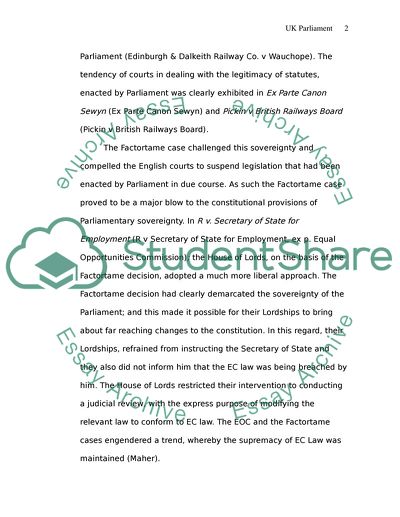Cite this document
(The Traditional View of the Legal Supremacy of the United Kingdom Parl Essay, n.d.)
The Traditional View of the Legal Supremacy of the United Kingdom Parl Essay. Retrieved from https://studentshare.org/law/1547469-the-traditional-view-of-the-legal-supremacy-of-the-uk-parliment-withstood-all-challenges-to-it-the-uks-membership-of-the-european-union-has-though-finally-ki
The Traditional View of the Legal Supremacy of the United Kingdom Parl Essay. Retrieved from https://studentshare.org/law/1547469-the-traditional-view-of-the-legal-supremacy-of-the-uk-parliment-withstood-all-challenges-to-it-the-uks-membership-of-the-european-union-has-though-finally-ki
(The Traditional View of the Legal Supremacy of the United Kingdom Parl Essay)
The Traditional View of the Legal Supremacy of the United Kingdom Parl Essay. https://studentshare.org/law/1547469-the-traditional-view-of-the-legal-supremacy-of-the-uk-parliment-withstood-all-challenges-to-it-the-uks-membership-of-the-european-union-has-though-finally-ki.
The Traditional View of the Legal Supremacy of the United Kingdom Parl Essay. https://studentshare.org/law/1547469-the-traditional-view-of-the-legal-supremacy-of-the-uk-parliment-withstood-all-challenges-to-it-the-uks-membership-of-the-european-union-has-though-finally-ki.
“The Traditional View of the Legal Supremacy of the United Kingdom Parl Essay”, n.d. https://studentshare.org/law/1547469-the-traditional-view-of-the-legal-supremacy-of-the-uk-parliment-withstood-all-challenges-to-it-the-uks-membership-of-the-european-union-has-though-finally-ki.


